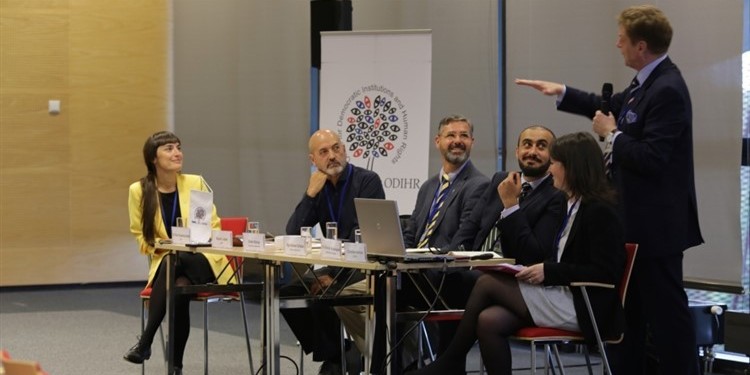Armed Forces and Freedom of Religion or Belief
In the framework of the annual OSCE Human Dimension Implementation Meeting, Europe’s largest human rights conference, EUROMIL and the OSCE Office for Democratic Institutions and Human Rights (ODIHR) jointly organized a side-event on the topic of freedom of religion or belief in the armed forces on 14 September 2017.
OSCE participating States have committed themselves to ensure freedom of thought, conscience, religion or belief for all and to prohibit discrimination on any ground, including religion or belief, principles which are enshrined in major international human rights instruments. Notwithstanding this, the right to freedom of religion or belief remains under significant pressure in the OSCE region. In the armed forces, the expression of an inalienable right such as freedom of religion or belief is often confronted with the limits imposed on its manifestation by military service.
The side-event aimed at discussing international standards regarding freedom of religion or belief in the armed forces as well as to share experiences and good practices from various OSCE Participating States. Distinguished panelists included Dr. Ewa Sapiezynska, Human Rights Officer, ODIHR, Sgt. Ahmed Dhalai, Assistant to the Islamic Religious Advisor, Ministry of Defence, UK, Dr. Dirck Ackermann, Office of the Protestant Chaplaincy, German Armed Forces, Col. Erwin Kamp, Head of the Humanist Chaplaincy Service, Dutch Armed Forces and Miguel Lopez, United Association of Spanish Military (AUME).
During the event, some recommendations could be outlined. It was highlighted that service in the armed forces should be open to all, regardless of religion. Servicemen and –women are first human beings and “Citizens in Uniform”. Whenever possible, armed forces should accommodate their religious or non-religious practices and needs. Any restriction to their right to freedom of religion or belief should be justified and proportionate. Ministries of Defence should distribute guidance on how to accommodate this in practice and States should ensure that armed forces are free from discrimination and harassment on the grounds of religion.
Although a wide variety of practices exists as regards the accommodation of religious and spiritual needs as well as chaplaincy structures in the armed forces, it was noted that more countries have military chaplains representing different religions as well as humanists to answer the needs of the servicemen and –women it is composed of. Chaplains may also help the whole society by drawing attention to certain issues such as PTSD or moral injuries and, as partner of national authorities, frame policy recommendations. Nevertheless, more attention should also be paid to non-believers and humanist counseling and no religion or belief should be imposed on anyone.
EUROMIL promotes diverse and inclusive armed forces, reflecting the society they serve.
(Picture credit: OSCE/Maria Kuchma)

